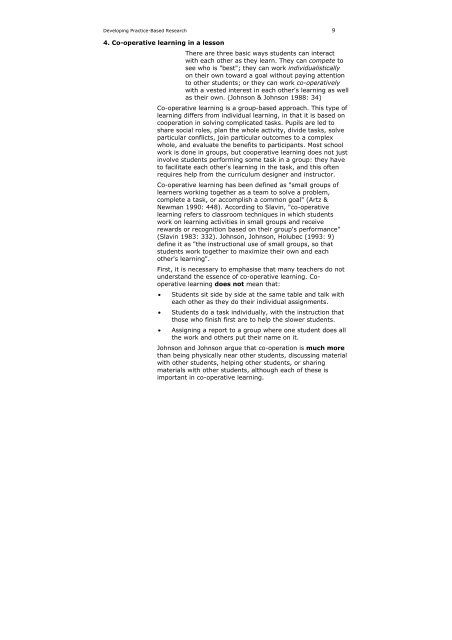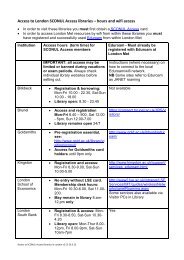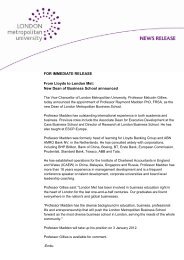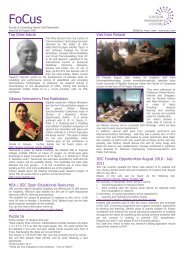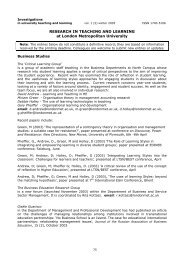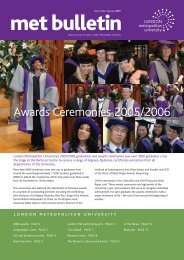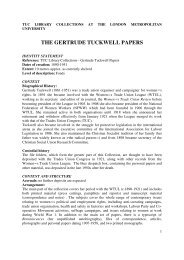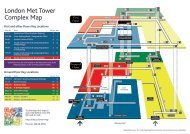Researching citizenship: - London Metropolitan University
Researching citizenship: - London Metropolitan University
Researching citizenship: - London Metropolitan University
Create successful ePaper yourself
Turn your PDF publications into a flip-book with our unique Google optimized e-Paper software.
Developing Practice-Based Research 9<br />
4. Co-operative learning in a lesson<br />
There are three basic ways students can interact<br />
with each other as they learn. They can compete to<br />
see who is "best"; they can work individualistically<br />
on their own toward a goal without paying attention<br />
to other students; or they can work co-operatively<br />
with a vested interest in each other's learning as well<br />
as their own. (Johnson & Johnson 1988: 34)<br />
Co-operative learning is a group-based approach. This type of<br />
learning differs from individual learning, in that it is based on<br />
cooperation in solving complicated tasks. Pupils are led to<br />
share social roles, plan the whole activity, divide tasks, solve<br />
particular conflicts, join particular outcomes to a complex<br />
whole, and evaluate the benefits to participants. Most school<br />
work is done in groups, but cooperative learning does not just<br />
involve students performing some task in a group: they have<br />
to facilitate each other's learning in the task, and this often<br />
requires help from the curriculum designer and instructor.<br />
Co-operative learning has been defined as "small groups of<br />
learners working together as a team to solve a problem,<br />
complete a task, or accomplish a common goal" (Artz &<br />
Newman 1990: 448). According to Slavin, "co-operative<br />
learning refers to classroom techniques in which students<br />
work on learning activities in small groups and receive<br />
rewards or recognition based on their group's performance"<br />
(Slavin 1983: 332). Johnson, Johnson, Holubec (1993: 9)<br />
define it as "the instructional use of small groups, so that<br />
students work together to maximize their own and each<br />
other's learning".<br />
First, it is necessary to emphasise that many teachers do not<br />
understand the essence of co-operative learning. Cooperative<br />
learning does not mean that:<br />
• Students sit side by side at the same table and talk with<br />
each other as they do their individual assignments.<br />
• Students do a task individually, with the instruction that<br />
those who finish first are to help the slower students.<br />
• Assigning a report to a group where one student does all<br />
the work and others put their name on it.<br />
Johnson and Johnson argue that co-operation is much more<br />
than being physically near other students, discussing material<br />
with other students, helping other students, or sharing<br />
materials with other students, although each of these is<br />
important in co-operative learning.


